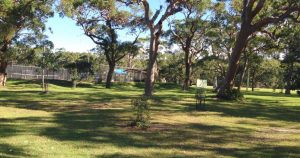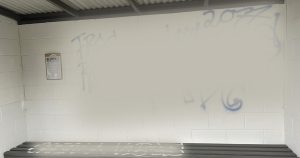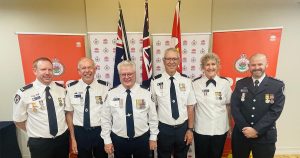From R. Fishburn’s Story in Galston News Sept. 1975
It was during World War 2, when an invasion of the Australian mainland by the Japanese seemed imminent, that Berowra Waters figured in an almost disastrous incident. It was March, 1942.
The Naval Control Board set up a plan to combat any possible Japanese amphibious attack on the eastern waterways by keeping all small craft out of enemy hands. The plan was the assembly of all small craft at a central control point, where, in the event of an invasion, all vessels could be quickly destroyed. Every type of craft—row boats, motor boats, luxury cruisers and house boats headed for cover at the dispersal point, Berowra Waters. After being individually marked and registered for future identification, all craft were towed to the final destination, Crosslands Flats. By April, 1700 craft were catered for at this point and another 300 were moored at Berowra Waters awaiting their final move to safety.
Work progressed well up to this stage, but then the rain commenced, and soon boats became flooded and the task of the horses hauling the boats had to cease, because of mud.
The river had been rising for two days and, on the third day, began to break its banks. After checking that all craft were securely tied, all workmen, except two, headed back as usual to Berowra Waters. The two who remained lived in a house overlooking the river flats and cared for the horses.
That night the two men were startled by a terrific roar, made by a raging river. Later it was confirmed that logs had jammed behind Galston Gorge Bridge, forming a dam and when pressure had released them the wall of water rushed down Berowra Creek, picking up boats and whatever was in its way.
The two workmen rescued two elderly ladies who lived in a cottage which was 25 feet above the normal river level. These men, as well as their workmates at Berowra Waters Ferry, stood by helpless, watching craft go crashing down stream. Owing to the irregular course of the river and its rocky foreshores, it seemed that every vessel would be smashed to pieces, but the majority of boats were salvaged
Another war time measure to confuse the expected Japanese invaders was to take down every street sign and road notice. Nothing was wasted, and one home in Blacks road had its veranda lined with the street signs that had been taken down! It was years after the war finished before the street signs were replaced.
Those of us who lived through the war years, would remember the severe rationing of petrol, butter, sugar, meat, and clothes. We did not waste a thing then and perhaps we should be less wasteful of our precious resources now.
At the next meeting of the Dural Historical Society at the History Cottage, next to the Cenotaph, on Saturday, 9th September, the guest speaker will be Garry Smith who will speak about “Promise of better husbands to come” All welcome. The A.G.M. will be held in October.








